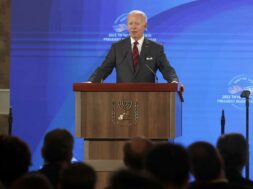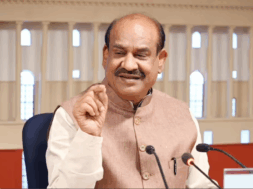
Biden wants to make clear that the US can continue to lead in the Middle East region
New Delhi: Washington intends to demonstrate to countries of the Middle East that the US can continue to lead in the region, President Joe Biden told a joint news conference with Israeli Prime Minister Yair Lapid on Thursday.
The president said that he planned to discuss the human rights issue at the upcoming meeting with the Saudi leadership. “I have never been quiet about talking about human rights,” Biden said, stressing that the reason he was going to Saudi Arabia was much broader, it was to promote US interests. “What I think, we made a mistake of walking away from our influence in the Middle East,” the US leader stressed ahead of a Gulf Cooperation Council summit hosted by Saudi Arabia.
Biden said he was going to meet “with nine other heads of state”. “And so there are so many issues at stake that I want to make clear that we can continue to lead in the region and not create a vacuum,” Biden stressed.
“A vacuum that is filled by China and or Russia, against the interests of both Israel and the United States and many other countries. And so the purpose of the visit is to coordinate with nine heads of state, what is in US interest, and I believe in Israel’s interest as well,” he stressed.
As the White House announced earlier, Biden intends to attend the Gulf Cooperation Council summit. The Council meeting is scheduled for July 16, in Jeddah. The leaders of Egypt, Jordan, and Iraq have also been invited.
The killing of journalist Jamal Khashoggi in 2018 strained relations between the US and Saudi Arabia. The US claimed that Saudi Crown Prince Mohammed bin Salman had personally approved the murder of the journalist because he saw him as a threat. Riyadh flatly rejected Washington’s accusations, but Biden has repeatedly promised to work to make the kingdom a rogue state.
The US media reported earlier this year that Saudi Arabia’s crown prince declined a phone call with Biden, who wanted to discuss the situation around Ukraine and the possibility of stepping up oil production to bring down global hydrocarbon prices.
(Vinayak)














